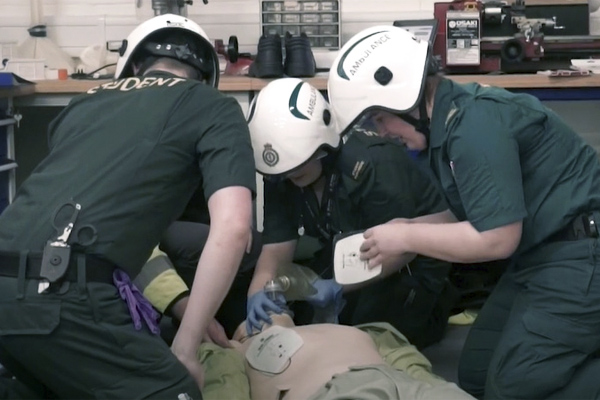HIV Research in Sub Saharan Africa
The LIRCH team has been at the forefront of HIV research in Sub-Saharan Africa, with a particular focus on HIV epidemiology and improving access to HIV testing and prevention. LIIRH researchers, Dr Paul Mee and Dr Maxime Inghels are key investigators in two £1.7m international research projects funded by the US National Institutes of Health (NIH). At the heart of the “Harnessing male peer networks to enhance engagement with HIV prevention" (Imperative) trial, lies the promotion of Pre-Exposure Prophylaxis (PrEP) as a highly effective method for preventing HIV infection.
In this study which will be conducted in collaboration with the Manicaland Centre for Public Health in Zimbabwe and other international partners from Africa, the United Kingdom, Denmark, Germany and the USA, the team of researchers will seek to establish the population impact of HIV self-test distribution through male social networks, coupled with innovative community-based support on PrEP uptake. Zimbabwe, like many other countries in sub-Saharan Africa, faces the harsh reality of the HIV epidemic. With a substantial portion of the population affected by the virus, innovative approaches are urgently needed to combat its devastating impact. The research findings hold promise for the development of a generalisable, multicomponent male peer-based HIV self-testing and PrEP uptake model that could be applied in other high HIV incidence settings, bringing hope for progress in the global fight against HIV.
Findings from the second project “The changing face of HIV in the era of COVID-19: Maximising HIV incidence reduction through dynamic targeting of current and future distributions of acquisition risk", will be used to inform the future implementation of HIV prevention programmes. Although recent research has shown that there has been a substantial reduction in new HIV infections in rural areas in sub–Saharan Africa, events such as Covid-19 which disrupted HIV care and the shift to Dolutegravir-based regimens (a new antiretroviral medication to control HIV infection) could alter the burden of unsuppressed viral load and new HIV infections.
Together with researchers from the French research institute Inserm, Dr Maxime Inghels is modelling the size and spatial distribution of the paediatric and adolescent HIV epidemic in Cote d’Ivoire. In partnership with the French NGO Solthis, the French Institut de Recherche et Développement (IRD), and the Guinean Centre de recherche et de formation en infectiologie (CERFID). With funding from French Agency on AIDS (ANRS) (£424,000). Dr Maxime Inghels is also investigating the impact of the introduction of injectable ARV treatment for people living with HIV in Senegal and contributed to two recent NIH-funded HIV research projects aimed at understanding and reducing HIV incidence in rural South Africa: the HITS trials “Can HIV hot-spots be eradicated?” (£2.1m) and Causal Pathways to population health impact of HIV antiretroviral treatment (£1.8m).

/prod01/university-of-lincoln-cdn-pxl/media/responsive2017/collegeofsocialscience/schoolofhealthandsocialcare/Liirh,Research,Header.jpg )

